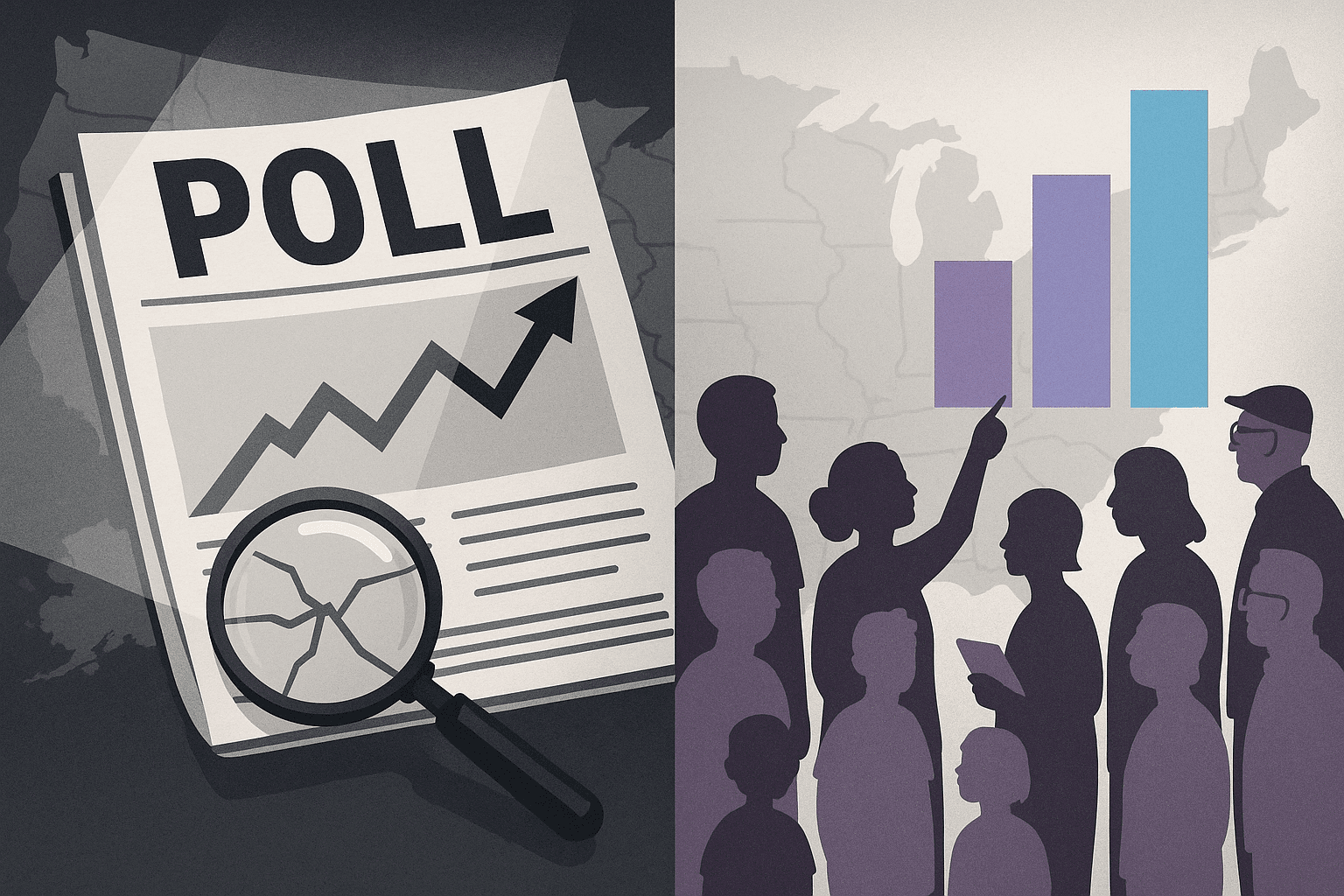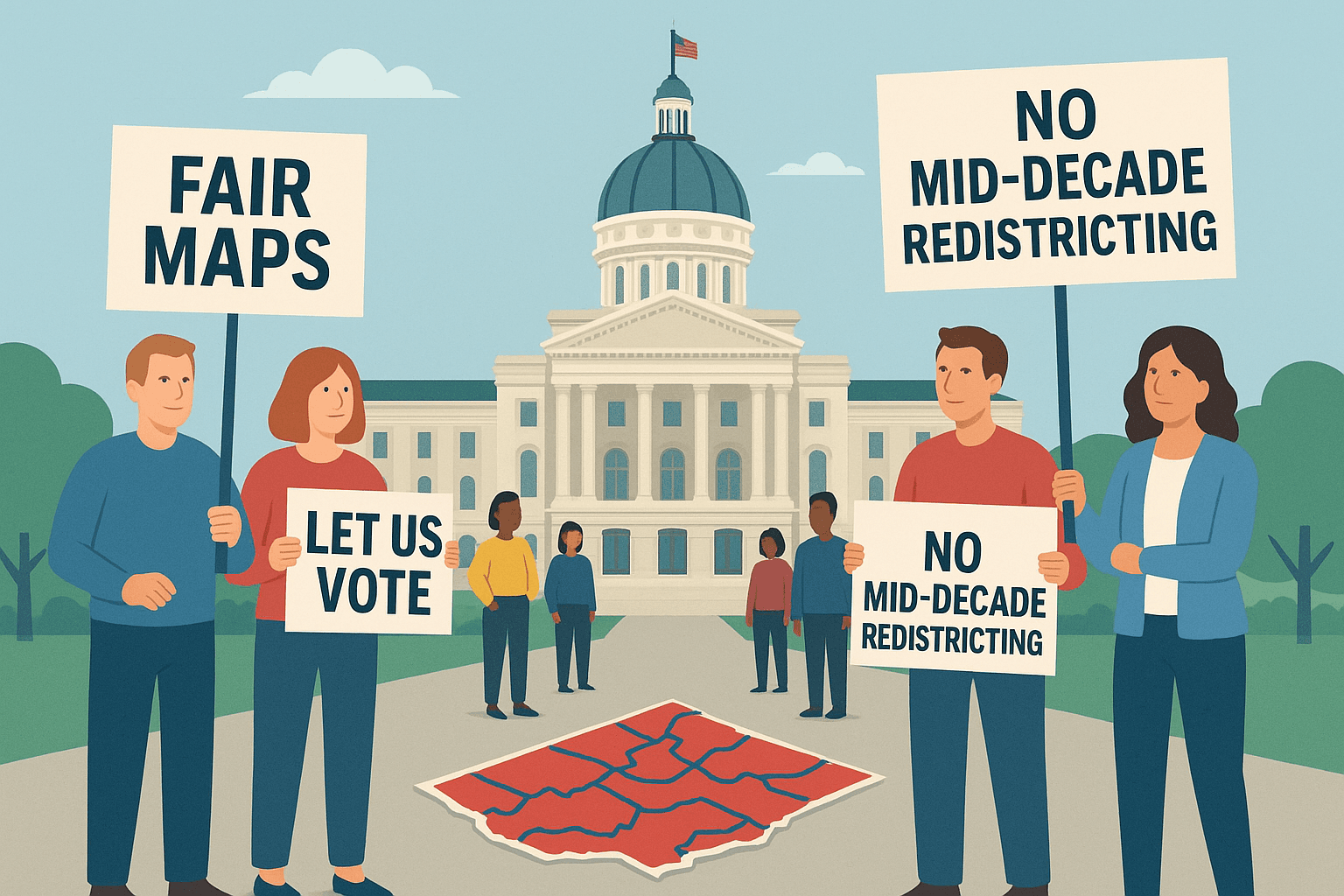Gallup: Americans More Likely to Rank Government Leadership as No. 1 Problem
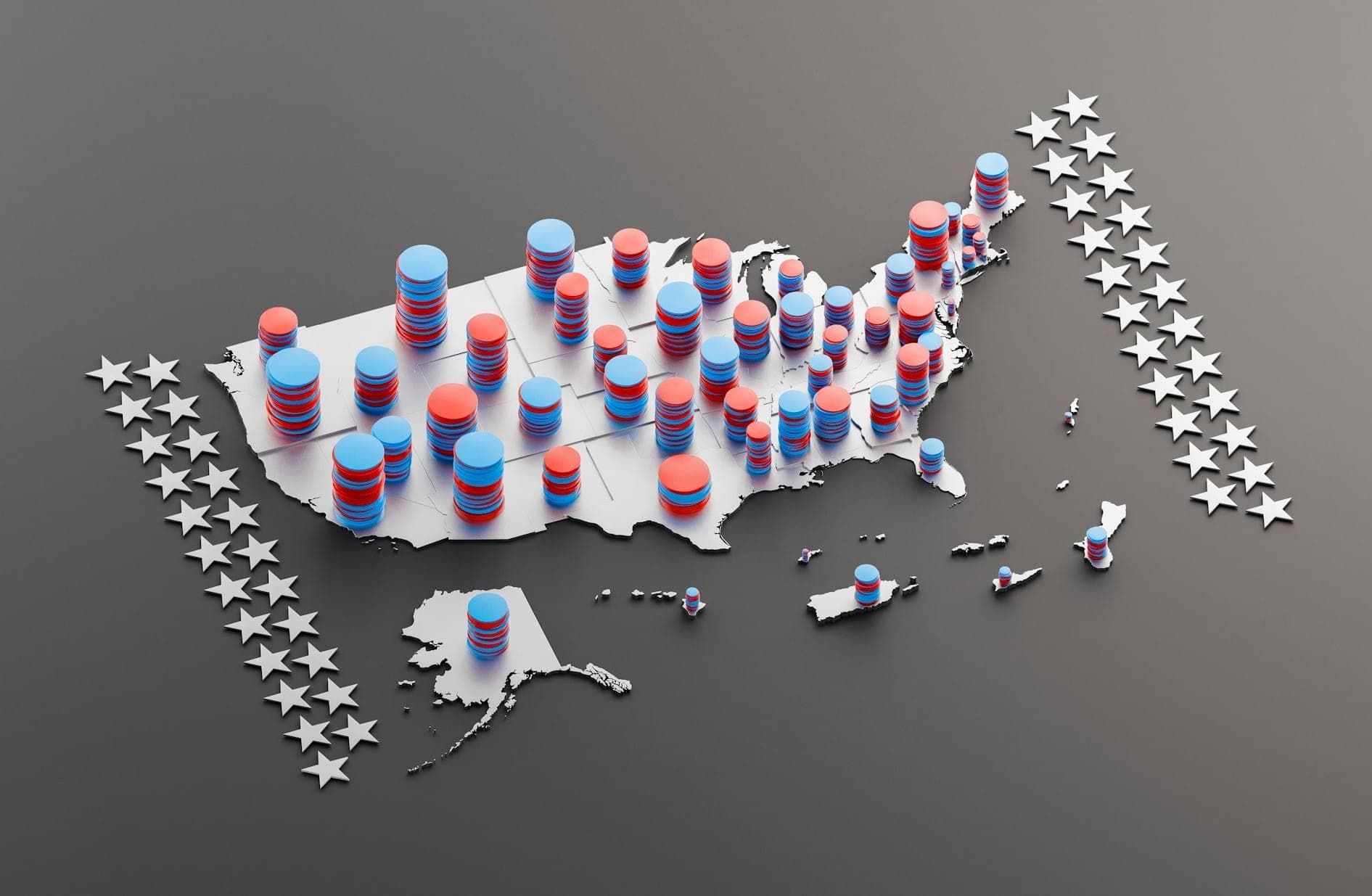
The latest polling data from Gallup shows that the number one problem facing the US for most voters now is not the economy, it is not cost of living or inflation -- it is poor leadership in the government.
According to Gallup, 27% of Americans named "Government/Poor Leadership" as the most important problem facing the US, followed by "the economy" at 18%, "immigration" at 14%, and "cost of living or inflation" at 9%.
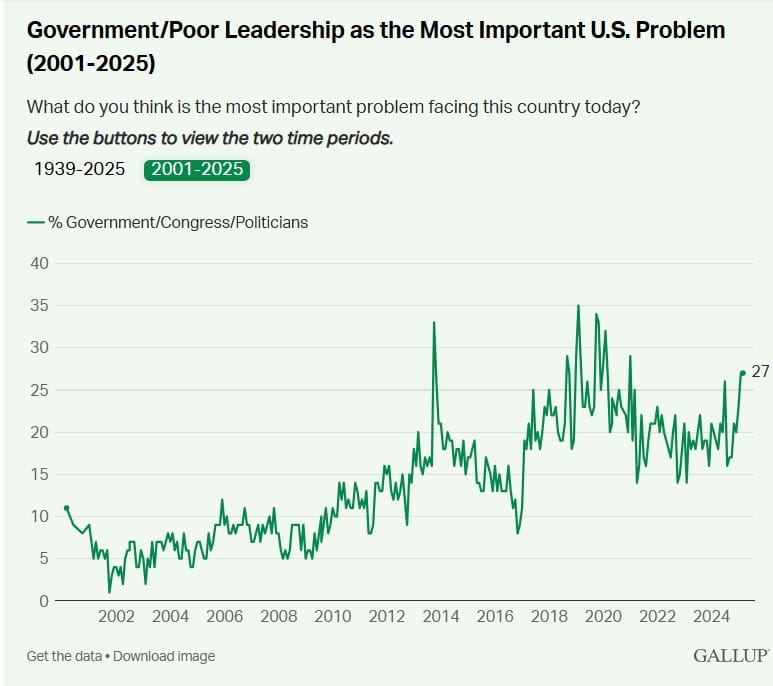
Economic issues were divided over multiple categories, so individual concerns were split. In total, there were 45 categories for poll respondents to potentially name as the US's most pressing issue.
Notably, the percentage of respondents who said "Government/Poor Leadership" is one point higher than when it peaked under the Biden administration in July 2024 -- corresponding with the presidential debate.
It is also worth noting that this number has been on a sharp rise since August 2024 when it dropped to 16% but has increased 11 points since.
The Lack of Distinct Independent Voices Leaves a Vital Piece Missing
It's not a big surprise that Republican responses to the poll look drastically different than Democratic responses. However, it is hard to gauge an independent response as Gallup forces them into the "leaners" box.
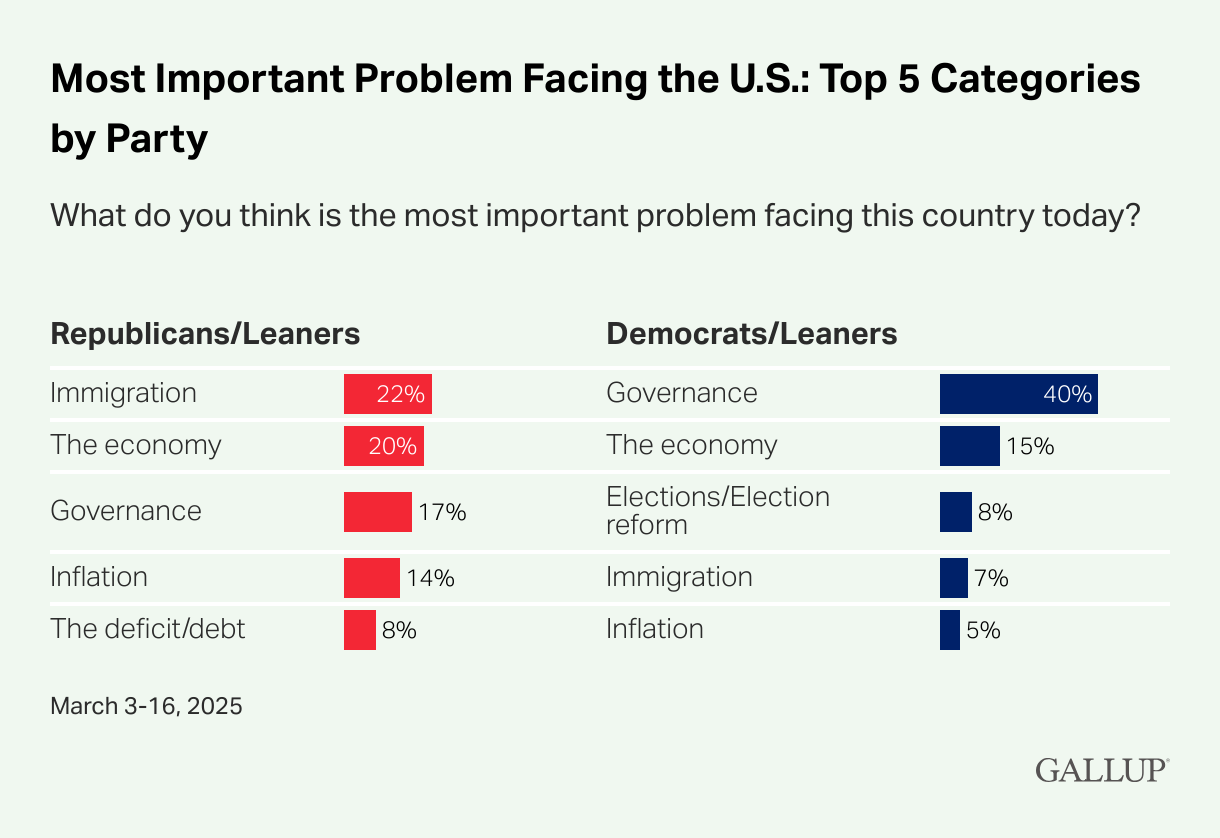
Former NBC host Chuck Todd said in a recent discussion that independent voters are not only the ones who ultimately decide the nation's biggest elections, but they end up being "a microcosm of where the story is headed."
If analysts wanted to know how perception of government leadership was going to impact the 2026 midterms, for example, then it would be important to highlight exactly how independent voters think.
After all, the slim majorities in Congress will be determined in a handful of races that will be decided by people outside both major parties.
How party members feel about government doesn't give new insight. For example, Democrats see Donald Trump as "a central threat." as his name was mentioned by Democratic respondents more than any other phrase.
Republicans, on the other hand, have a "strong distrust of Democrats." None of this is breaking news.
However, how did independent and independent-minded voters who were asked to lean toward a party influence the responses? For example, some of the top themes on both sides were related to polarization, division, and accountability.
Among the top 6 themes with Democrats and independents that said they lean toward the Democratic Party, “Poor leadership and lack of accountability” was fourth and “Political polarization and dysfunction” was fifth.
Among the top 6 themes with Republicans and independents that said they lean toward the GOP, "Political division and gridlock” was fifth and “Disconnect between political elites and the people” was sixth.
The current system incentivizes the parties to pit their members against each other, which has led to Republicans and Democrats viewing each other as the enemy. Naturally, they will distrust the "other side" when they are in power.
A growing segment of independent-minded voters can highlight where the true problems with government reside if they are allowed a distinct voice in these polls and not expected to be party leaners.
 Shawn Griffiths
Shawn Griffiths
